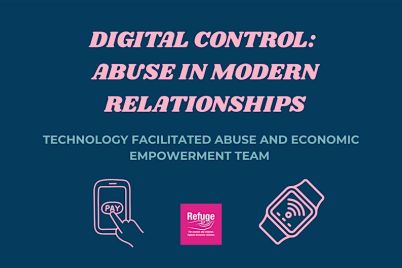If a review on something you were considering buying suggested that it was a terrible, low-quality product – would it stop you from buying it?
At one time or another, I think we can all admit that we have fallen victim to being so close to purchasing something that we want, before completely changing our minds after seeing a single, negative comment.
UK shoppers are now increasingly turning to online reviews to base their purchasing patterns on, trusting information from those they have never met before, over that of retailers, magazines, and sometimes even family and friends.
The Government have found that reviews influence an estimated £23 billion of UK consumer spending annually – making them one of the most powerful trust signals online – so with the recent rise of fake and spam reviews being published, it is no mystery why small businesses across the UK are struggling.
After conducting their survey in 2023, the Government further published that fake reviews on products alone can cause an estimated £50 million to £312 million in total annual harm to UK consumers, with up to 30-35% of online reviews possibly being fake across major platforms, and this is taking its toll on SEOs.
The London-based SEO agency, Ignite SEO, was recently targeted by this behaviour, and know first-hand what the impact of fake reviews can be. Adam Collins, CEO of Ignite SEO has commented: “We woke up to a string of one-star reviews posted in the middle of the night. A few hours later I even had a spammer messaging me directly on WhatsApp. It’s a coordinated attempt to shake trust and it shows just how far these scams go,
“For small businesses, even a handful of fake reviews can damage rankings, scare off new clients, and create real financial loss.”
There are ways to spot fake and spam reviews online, where spikes in activity or generic language can be a big giveaway. If you see several negative comments being uploaded in quick successions to one another, with very vague and undetailed complaints – you can commonly assume that this is not real.
Additionally, if an account uploading them has no history or negative activity alone, and the timings that they are posting are suspicious (such as in bulk, overnight), these are all clear signs.
To combat these occurrences, business can take different measures themselves, to fight against the fake reviews made. Firstly, it is important to always remain calm and respond professionally in these situations – reporting and flagging the comments on Google, Trustpilot and other platforms that have formal removal processes.
Keep evidence of this as well – screenshotting comments can be very useful in removal requests and legal escalation. It is also smart to collect genuine feedback from valued customers and encourage those who are satisfied with your services to leave reviews regularly.
Finally, it is important to know the law around these scams.
The Digital Markets, Competition, and Consumer Act (DMCC Act) was passed into law in 2024, to add extra protection to consumer regulation. Through banning the practice of submitting fake reviews and legally prohibiting companies from commissioning or hosting fake reviews, the CMA now has enforcement powers which are reducing the risk.
To conclude, Adam Collins, said: “Fake reviews aren’t just an inconvenience—they’re an attack on your shop window. If someone vandalised your storefront, you’d clean it up quickly. Online reputations deserve the same care. The good news is the law is catching up, but SMEs need to stay alert and proactive.”
What if I’m the victim – as a consumer?
It is important to know that this can go the other way also – where companies fake reviews themselves to boost sales. It is very easy for people in positions of power to buy and sell fake reviews as a way of drowning out negative feedback, and prey on buyers to purchase something which is not what they think it is!
This is illegal. If you suspect someone of doing this – and are victim of falling for a fake review scam – you can report it to the platform where you found them. Whether a product turns up not as you were expecting it, broken/faulty or overall wrong, this is a scam – and for the sake of others and the reputation of businesses, it is critical to flag this.
You can also report them to your local Trading Standards office. If you made payment on a credit card or PayPal, you can claim this back if the product is not up to scratch, and additionally on payments made on a debit card up to £100, this can usually be claimed back via ‘chargeback’.
If you fall victim to these lingering scams, do not panic – there should be a chance to get your money back!















